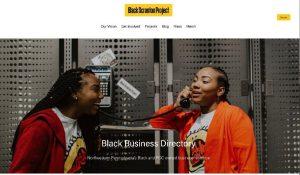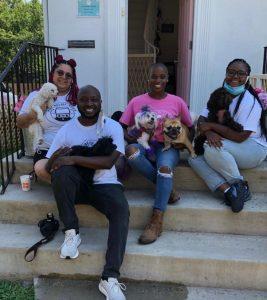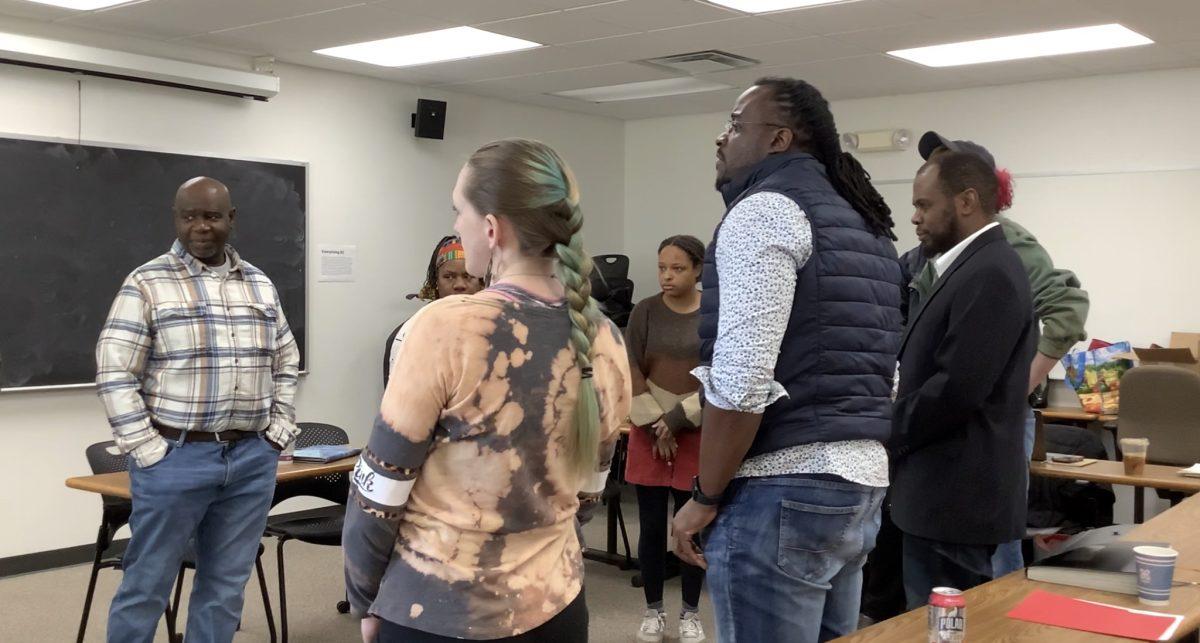In the wake of the Black Lives Matter movement, there has been a renewed emphasis on supporting black-owned businesses. People recognize that Black-owned businesses are vital to the economy, and that diversity in business is more important than ever. According to the Minority Business Development Agency, “by 2044, the Nation’s prosperity will rely even more on minorities.”
The Black Scranton Project, a non-profit organization based in Scranton, Pennsylvania., created a Black business directory on its website that can be used as a Northeastern Pennsylvania’s Black and POC owned business resource. It includes a growing list of businesses categorized by industry. Many Black business owners in the region are working to stand against discrimination in the workplace and reinforce the importance of diversity of business owners.

Despite this, many Black business owners still experience discrimination in the workplace. Only 31 percent of Black-owned businesses receive the funding for which they’ve applied for, according to a 2019 report on minority-owned businesses.
COVID-19 has also created many problems for Black business owners. About 40 percent of Black-owned businesses have closed since the beginning of the coronavirus outbreak. Although many Black business owners are struggling because of the pandemic, they’re finding support from their own communities.
La’Quitia Denson, a portrait and wedding photographer based in Wilkes-Barre, Pa., opened her business, Beyond the Pond Photography, in 2016. Since then, she has tried to create a business that caters to all types of people.
“The wedding industry isn’t made up of just one dynamic of people,” said Denson. “Love is love and everybody should get an opportunity to celebrate that.”
Denson said that it is important to monitor the type of language that she uses with clients and on her website so that she can be welcoming to everyone. One of the blog posts on Denson’s website talks about inclusive language in the wedding industry, specifically focusing on non-binary clients.
Denson also emphasizes the importance of including all races in her photography work. “My appearance has become super important because it lets everyone know that not all photographers are white,” said Denson. “I want to reflect that in my work. White is not the default.”

Denson said that although she has not experienced any outward discrimination with clients, but she does think that it is very difficult to get your start in the business industry as a woman of color.
“Trying to navigate the industry is hard,” said Denson. “Especially with everything going on right now.”
Many larger businesses have taken advantage of the Black Lives Matter movement, noted Denson, using it as a business strategy more than a form of activism.
“We see a lot of these businesses and brands that are trying to be inclusive, but then you see how they are treating people behind closed doors, and it doesn’t match up,” said Denson. “Diversity is important always, not just for business reasons.”
Juanita Harris, a certified canine cosmetologist and owner of Grooming by Juanita, has been working in the pet grooming business for 10 years. In her time as a business owner, Harris has founded Black Pet Care Professionals, a source for finding Black-owned pet care businesses across the U.S.

Although she has found support from other Black business owners in the pet care industry, Harris said she has faced discrimination from clients from the very beginning.
“Because I go by my own name, it gives some people the preface to judge automatically,” said Harris.
Harris also said that she has had people from her community tell her to change her name so that she will be more appealing. “Sometimes people aren’t outwardly rude, but you can feel the tension,” said Harris. “Other times, it’s outward. I have had people yell out to me ‘if you’re not white, you’re not right’. It gets discouraging at times.”
Sonya Dixon, owner of Dixon Candle and Bath, has been an independent business owner for over 17 years. Dison said she has not experienced outward discrimination, but has seen how the business industry can be toxic for people of color.
“If you have a great product, it doesn’t matter who is behind it,” says Dixon. “And when you bring racial discrimination into a business, it doesn’t just affect that business, it affects generations of work towards racial equality.”
Dixon said that her racial identity has nothing to do with her candle business, and it shouldn’t have to.
“If young children of color would see more people that look like them as your everyday people, it could motivate them,” said Harris. “I want to be a representative for kids in this area to show them that black people are an essential part of their community.”





